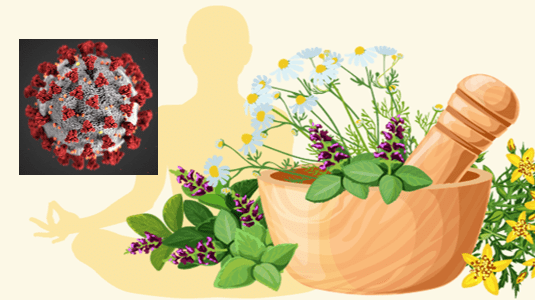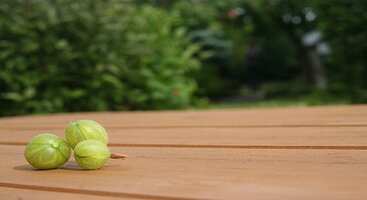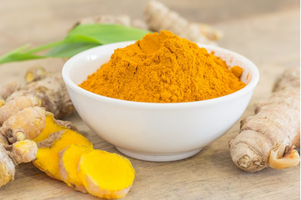
Ayurveda, Yoga and Covid-19: take responsibility for your Health
Covid-19 related infections and death continue to rise globally. The unprecedented and multidimensional challenges that the SARS_COV2 created in every sphere of life including medical, technological, scientific, environmental, socio-economic and political has not only created a scare but also a global concern about the future of health care.
The impact of Covid-19 on psychological distress and mental health, especially in vulnerable groups such as healthcare workers is significant. In these individuals, the immune function could also be compromised including an increased risk of viral respiratory tract infections.
While there appears to be a positive impact on the climate, environment and other ecological systems, there is also a tremendous negative impact on the business, economy and the healthcare systems. Despite the many devastating impacts, the COVID-19 crisis should serve as a trigger for individuals, communities and the whole healthcare ecosystem to innovate at a quicker pace and reinvent the way we look at health and wellness. It is time to rethink and strategize our priorities regarding health, hygiene, diet, lifestyle and our close connection with the ecosystem and environment.
Major 5 Risks of Catching COVID
There are several apps that can help predict chances of Covid-19 infection based on a limited set of parameters. You can read about them in the recent Nature article published in Dec, 2020 (https://www.nature.com/articles/d41586-020-03637-y).
Some of the factors to consider include:
- The infection risk can vary depending on your lifestyle, location and the type of work they are doing.
- Travel can also add to the level of risk exposure. For example, short car trips with just friends or families with limited stops might have a lower risk than flights with layovers.
- Exercise, be it in the gym with other people vs running or walking in a part with other people also have different levels of risk.
- According to the CDC, individuals with serious chronic or long-term medical conditions or older adults have a higher risk of becoming ill from COVID-19.
- Lifestyle including exposure or contact with people affected by Covid-19 and experiencing symptoms such as cold, cough, fever or shortness of breath
Vaccines
The FDA has given emergency use authorization to the Pfizer-BioNTech COVID-19 vaccine which comes with a 95% efficacy rate (95% of vaccinated individuals are protected from becoming seriously ill with the virus). This vaccine is for those 16 and older, requiring 2 injections given 21 days apart. The FDA has also given emergency use authorization to the Moderna COVID-19 vaccine which comes with an efficacy rate of 94.1%. This vaccine is for people aged 18 and older, requiring 2 injections given 28 days apart. A single dose vaccine has also been approved recently.
In spite of these efforts, many healthcare workers are hesitant to take COVID-19 vaccine even with early access to the vaccines. It is not exactly clear how long you can be protected by the Vaccines, but estimates are more in the range of months rather than years. Natural immunity or the protection someone gained from having a Covid-19 infection varies from person to person and last only for months.
How Diet and Lifestyle will Mitigate the risk of Covid-19
Here are some simple recommendations published for mitigating the risks of Covid-19:
- Diet
- Eating Healthy
- Eating at home
- Eating at the right times
- Lifestyle: Distance, ventilation and masks can typically mitigate the spread of virus-laden droplets and lower the chances of infection.
- Avoid close contact
- Wear a mask
- Practicing good hygiene
- Stay indoors if you are sick or have some symptoms
- Avoid large gathering
- Immune supplements or herbs can help combat to a certain extent
Ayurveda treatment for Covid-19
In Ayurveda several preventive and treatment options available. They can positively impact mental health and immune function through modulating several pathways. The Ministry of AYUSH, Government of India has published several self-care guidelines for preventive health measures and boosting immunity with special mention of respiratory health.
- Enhancing immunity against respiratory illness (include certain immunomodulators- Rasayana, local and systemic interventions).
- Prophylaxis measures
- Herbal decoctions (Ex: Basil, Black Pepper, Dry Ginger, Cinnamon)
- Warm milk with Turmeric, Cardamom
- Consumptions of hot water
- Gargling with medicated water
- Steam inhalation (with Mint, Caraway and Clove)
- Lifestyle or Daily Routine (Dinachariya)
- Daily practice of Yogasana, Pranayama or Meditation for at least 30 minutes
- Nasal application of sesame oil / coconut oil or Ghee in both the nostrils in morning and evening.
- Oil pulling – 1 tablespoon sesame or coconut oil in mouth. Do not drink but Swish in the mouth for 2 to 3 minutes and spit followed by warm water rinse.
- Diet
- Spices like Turmeric, Cumin, Coriander, Ginger and Garlic are recommended in cooking.
These can be quickly implemented on large scale in a simple, affordable, and acceptable manner.
Ayurveda can provide a vision for an Integrative Healthcare in Harmony with Nature
An integrative approach to health care is imperative to withstand future onslaughts from microorganisms. Integrative health care is now a catchphrase with many institutions radically changing their medical education and training methodology to include systems-based, individualistic mind-body strategies. Such a visionary health care approach would involve courses that combine modern medical education and alternative medical systems including Ayurveda, Yoga, energy medicine, Chinese medicine and other indigenous systems of medicine. The development of an integrative curriculum will lead to a better understanding of optimal health and wellness termed as Whole systems Medicine that encompasses the individual, families, communities and the environment.
Embedded in this visionary health care system is the philosophy of ‘Svasthya’, the knowledge that optimal health and wellness is ‘being grounded or being rooted within’ together with a balanced interaction with other beings and the environment. Such knowledge encourages every individual to take responsibility for their own health through the concept of interdependency and the close relationship with biological, psychological, spiritual, and ecological factors.
Finding the solution that is appropriate for you individually can be very challenging. Therefore, we recommend seeking expert advice from a certified Ayrurvedic practitioner or healthcare professional who can set you on the right course to finding a solution that is perfect for you.
Note: The information in this article is intended for your educational use only and is not a substitute for professional medical advice, diagnosis, or treatment. Always seek the advice of your physician or other qualified health providers with any questions you may have regarding a medical condition and before undertaking any diet, supplement, fitness, or other health programs.






